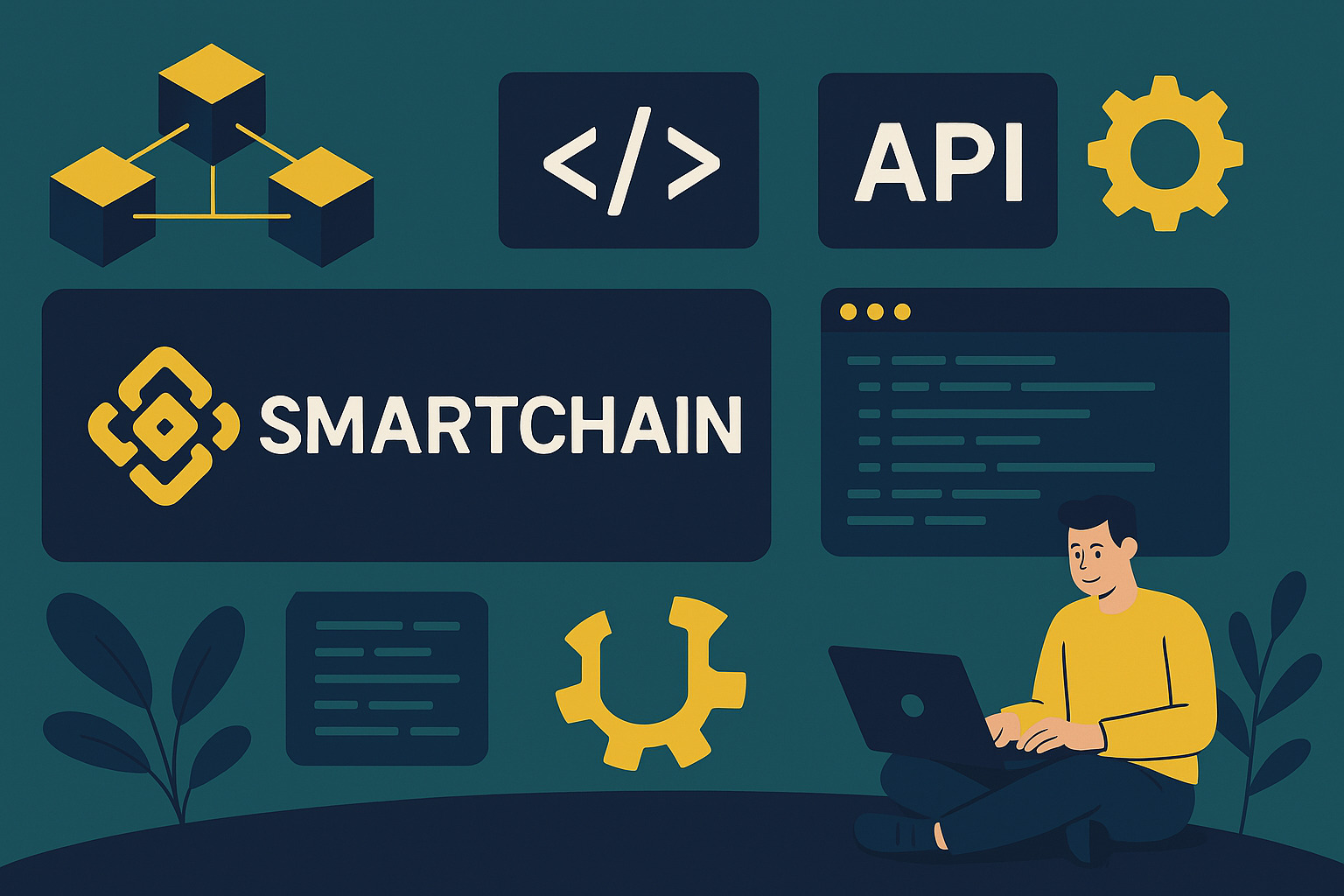
Blockchains don’t crash, but projects built on them do. Not because the idea was bad, but because the foundation wasn’t solid. SmartChain offers the infrastructure, but developers need the right tools to make it work. The challenge isn’t just writing code—it’s choosing the right stack, managing efficiency, and keeping things secure.
Let’s break down the tools and APIs that help developers build efficiently on SmartChain, from writing smart contracts to optimizing transactions.
Core Development Tools
Before diving into APIs, let’s talk about the essential tools that make SmartChain development smoother. The right development environment can save hours of debugging and reworking.
Smart Contract Development Frameworks
Writing smart contracts from scratch is a waste of time. Frameworks help structure code, test functions, and deploy seamlessly.
- Hardhat – A developer favorite. It allows local testing, debugging, and scripting with automation.
- Truffle – A solid choice for contract management, testing, and migrations.
- Brownie – If you’re working with Python, this is the go-to for SmartChain contract development.
IDEs and Code Editors
A good Integrated Development Environment (IDE) can speed up debugging and prevent errors before they happen.
- Remix – A web-based IDE designed for smart contract development, perfect for quick prototyping.
- VS Code + Solidity Extensions – Works well with plugins that offer syntax highlighting, linting, and inline debugging.
- IntelliJ IDEA – With the right plugins, it becomes a powerful tool for Solidity development.
Blockchain Simulators and Local Nodes
Testing directly on SmartChain can be expensive and slow. Simulators help developers test without burning tokens.
- Ganache – A local Ethereum and SmartChain test network that runs on your machine.
- Anvil – A faster alternative that integrates well with Hardhat and Foundry.
- Geth & OpenEthereum – Full node software for those who want to run their own blockchain instance.
APIs for Seamless Development
APIs act as a bridge between SmartChain and external applications. They simplify interaction with the blockchain, making development faster and more efficient.
Blockchain Interaction APIs
Interacting with SmartChain directly isn’t always practical. These APIs provide structured ways to send transactions, read data, and execute smart contracts.
- Web3.js & Ethers.js – JavaScript libraries that allow dApps to interact with SmartChain nodes.
- SmartChain JSON-RPC API – Provides raw blockchain data but requires manual parsing.
- Alchemy & Infura – Remote node providers that eliminate the need to run your own node.
Data and Analytics APIs
Blockchain data is messy. These APIs help make sense of transactions, contract calls, and wallet activity.
- The Graph – Indexes blockchain data so developers can query it like a database.
- Covalent – A unified API for pulling blockchain transaction data across multiple chains.
- Dune Analytics API – Provides raw blockchain data for custom analytics queries.
Wallet and Payment APIs
Handling user transactions requires security and speed. These APIs help integrate payments into dApps without exposing private keys.
- WalletConnect – A protocol for connecting mobile wallets to dApps securely.
- Fireblocks & Gnosis Safe – Multi-signature wallet APIs for managing funds safely.
- Ramp & MoonPay – Fiat on-ramp services that let users buy SmartChain tokens with traditional money.
Security and Auditing APIs
Security is non-negotiable. These APIs help scan contracts for vulnerabilities before they go live.
- MythX – Automated smart contract security analysis.
- OpenZeppelin Defender – A suite of security tools for monitoring and protecting deployed contracts.
- Forta – A real-time security monitoring system for detecting exploits.
Efficiency and Scaling Tools
Building is just one part of the equation. Optimizing gas fees and ensuring scalability is just as important.
Gas Optimization APIs
Gas fees fluctuate, and inefficient code can burn unnecessary tokens. These APIs help optimize transactions.
- Etherscan Gas Tracker API – Provides real-time gas price data for SmartChain.
- Blocknative Gas API – Predicts gas fees based on recent transactions.
- Flashbots API – Helps developers avoid front-running attacks and reduce transaction costs.
Layer 2 and Sidechain Solutions
Mainchain congestion slows things down. These tools offload some of the processing.
- Arbitrum & Optimism – Layer 2 rollups that reduce transaction costs.
- Polygon SDK – A sidechain solution for faster and cheaper transactions.
- zkSync & StarkNet – Zero-knowledge rollups that improve scalability.
Debugging and Testing Smart Contracts
Bugs in smart contracts are expensive. Running tests before deployment can prevent costly mistakes.
Unit Testing and Debugging Tools
Testing frameworks help catch issues early. These are must-haves for SmartChain development.
- Chai & Mocha – JavaScript-based testing frameworks that work well with Hardhat and Truffle.
- Echidna – A property-based testing tool for Solidity contracts.
- Tenderly – A contract debugger that helps track execution in real time.
Transaction Simulators
Before pushing a transaction, it’s smart to see how it will behave on-chain.
- Tenderly Transaction Simulator – Lets developers test transactions before executing them on-chain.
- Etherscan Tx Simulator – Shows potential outcomes of a transaction based on gas prices and network conditions.
Keeping Up with SmartChain Development
The blockchain space moves fast. Developers need to stay updated with the latest tools, best practices, and updates from SmartChain itself.
Developer Documentation and Communities
- SmartChain Docs – The official documentation for SmartChain development.
- Ethereum Stack Exchange – A good place for solving Solidity-related issues.
- GitHub & Dev.to – Many developers share open-source solutions and tutorials.
Keeping Code Open and Auditable
- OpenZeppelin Contracts – A library of secure and audited smart contract templates.
- Replit & GitHub Codespaces – Cloud-based coding environments for sharing and collaborating on SmartChain projects.
Final Thoughts
Building on SmartChain isn’t just about writing code—it’s about making smart choices with tools and APIs. Picking the right stack from the start saves time, reduces risks, and ensures smooth development. Whether you’re launching a DeFi project, an NFT marketplace, or a simple dApp, the right tools can make or break your success.
Stay updated, test thoroughly, and always keep security in mind. SmartChain has the infrastructure—it’s up to developers to build something that lasts.



